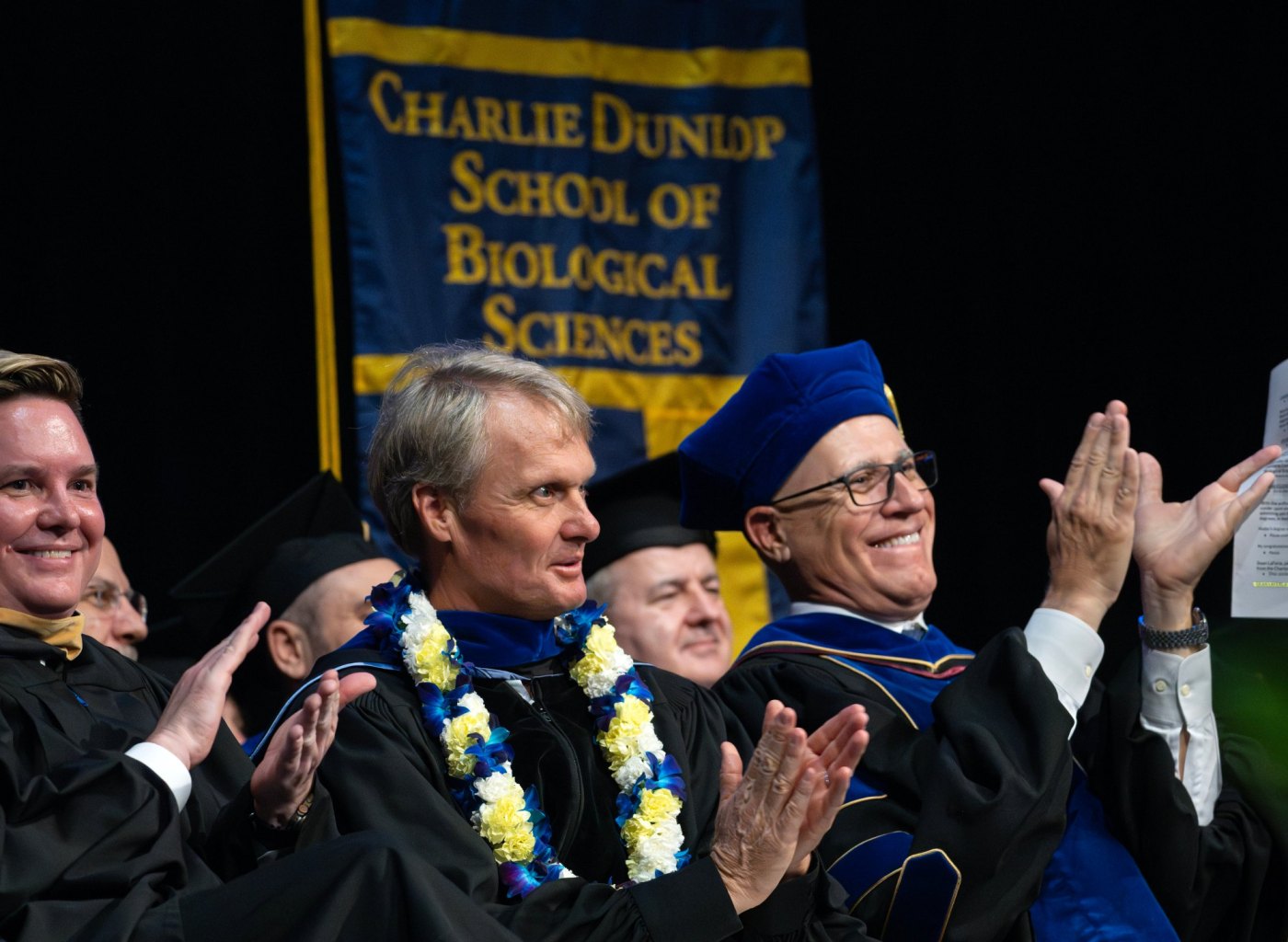UC Irvine will name its School of Biological Sciences for Charlie Dunlop after a $50 million donation from the Orange County biotech entrepreneur.
Dunlop’s gift creates an endowed fund that officials said will provide unrestricted support for academic and research activities within the school.
“I don’t think there’s any way to overstate the significance of this gift,” the school’s dean, Frank LaFerla, said. “I think it’s certainly going to have a profound impact on the School of Biological Sciences and UCI, but I think more importantly it’s going to have a lasting impact on the students and the community of Orange County for generations to come.”
UC Irvine announced the gift at Saturday’s commencement ceremony for the school, for which Dunlop was the featured speaker.
Raised in Orange County and a graduate of UC San Diego, Dunlop founded Ambry Genetics in 1999. The company became a pioneer in genetic testing, and Dunlop served as president and chairman of its board until the company was sold to Konica Minolta in 2017.
“UC Irvine is a huge asset to California, to the community and to Irvine,” Dunlop said. “It would have been impossible to build a business like Ambry without UC Irvine and the higher education system in California, so for me to give back to the system that produced me and most of Ambry’s employees seems like the right thing to do.”
The now Charlie Dunlop School of Biological Sciences focuses on research at the nexus of human and environmental health.
“Our motto at the school is three words: mind, body, world,” LaFerla, an acclaimed Alzehimer’s disease researcher, said. “For most of us to have a healthy mind, we need to have a healthy body. And to have a healthy body, we need to have a healthy world.”
Biological sciences was one of the original divisions of UC Irvine when the campus opened in 1965. Founding dean Edward A. Stienhaus organized the school based on levels of analysis rather than on taxonomy, which had been the common practice. He rationalized that greater advances would result from clustering faculty studying similar biological processes, officials said, as opposed to grouping individuals studying similar organisms. Revolutionary at the time, this organizational structure has become almost universally adopted at universities worldwide.
Today, the school has more than 4,000 undergraduates and 300 graduate students, making it one of the largest academic units at UCI. Multidisciplinary research and academic opportunities exist in the areas of cancer and infectious diseases, developmental biology and genetics, environmental and evolutionary studies, mechanisms of gene expression, neurodegeneration, learning and memory disorders, structural biology, stem cell therapies, and science education.
“This gift supports UC Irvine’s belief that human and environmental health are integrated and that well-being requires an evidence-based approach that engages all disciplines in the School of Biological Sciences,” UCI Chancellor Howard Gillman said in a statement. “Charlie Dunlop’s dedication to this vision and his deep generosity will help UC Irvine set a standard that other biology programs in the U.S. can follow.”
LaFerla said the unrestricted nature of the gift will allow researchers to take on high-risk, high-reward projects.
“When you have this kind of endowment, you’re able to provide seed money to the faculty and students to say, ‘Here, give me your best ideas. Give me your best of of the box thinking,’” he said.
Dunlop said dedication at the research bench translates directly to success.
“My experiences with children’s hospitals reaffirm the critical importance of our science. Whether aiding sick patients, supporting ecosystems or conducting basic research, the advancement of our field is vital,” he said. “This is why I have chosen to make this contribution to UC Irvine’s School of Biological Sciences.”





